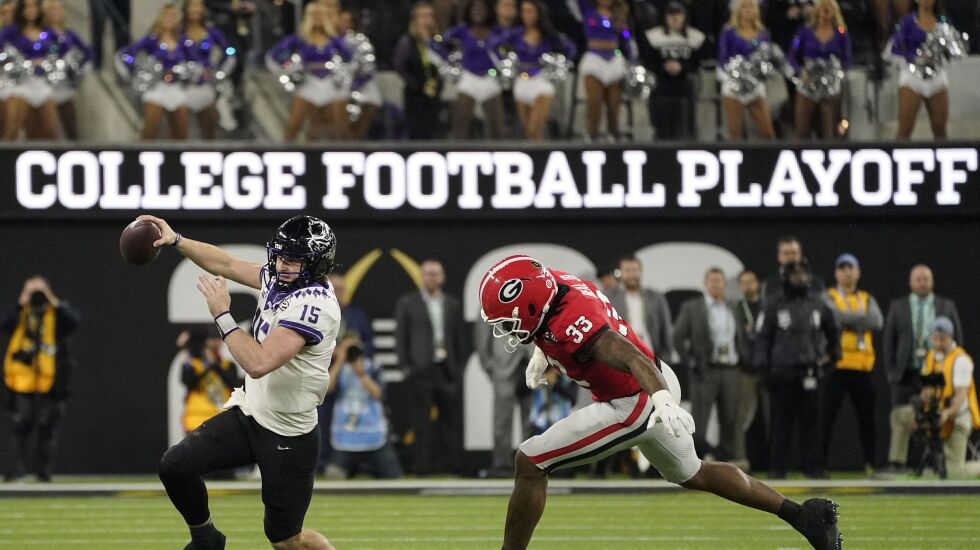
Fans of the wildly popular EA Sports College Football gaming franchise have a reason to rejoice.
EA Sports has contracted OneTeam Partners to incorporate the names, images and likenesses into the game, which is being relaunched with a summer 2024 release date, the company confirmed to USA TODAY Sports. The agreement will allow all eligible FBS players to opt in to have their likenesses incorporated and players will be compensated for opting in.
“We’ve wanted to feature collegiate athletes in a meaningful way from the start of our journey to bring an EA SPORTS college football experience back to our fans,” EA Sports said Wednesday in a statement. “We’re excited to have an agreement in place with OneTeam Partners that will enable us to include the names and likenesses of eligible collegiate football athletes at NCAA Division 1 Football Subdivision schools who opt-in to being featured in EA SPORTS College Football.”
What is unclear is the amount of the payout for players who decide to opt in. An EA Sports representative told ESPN that the goal was to be “as inclusive and equitable as possible.”
On its website, OneTeam lists a frequently-asked-questions section that includes the topic of college athletics video games.
“If it is not possible to identify individual sales, like in the case of video games, then revenue will be divided equally among the athletes included in each licensing program,” the company says.
ESPN reported that players who opt out will lead to EA Sports creating a generic avatar and player in that specific athlete’s place, similar to the older versions of the franchise.
More than 120 FBS programs, including all 10 FBS conferences and the College Football Playoff, have committed to participating in the game, ESPN reported.
When was the last EA Sports college football video game?
The franchise has been discontinued since 2013. The last college football game the video game franchise produced was NCAA Football 14 with former Michigan quarterback Denard Robinson gracing the cover.
The series was discontinued as the debate over student athletes being compensated for their names, images and likenesses continued around the country and in legislative bodies. The old video game franchise did not use actual college football player names, but the roster closely mirrored the actual ones with player numbers and positions tied to general physical appearances of those playing on fields on Saturdays.
Read more at usatoday.com







